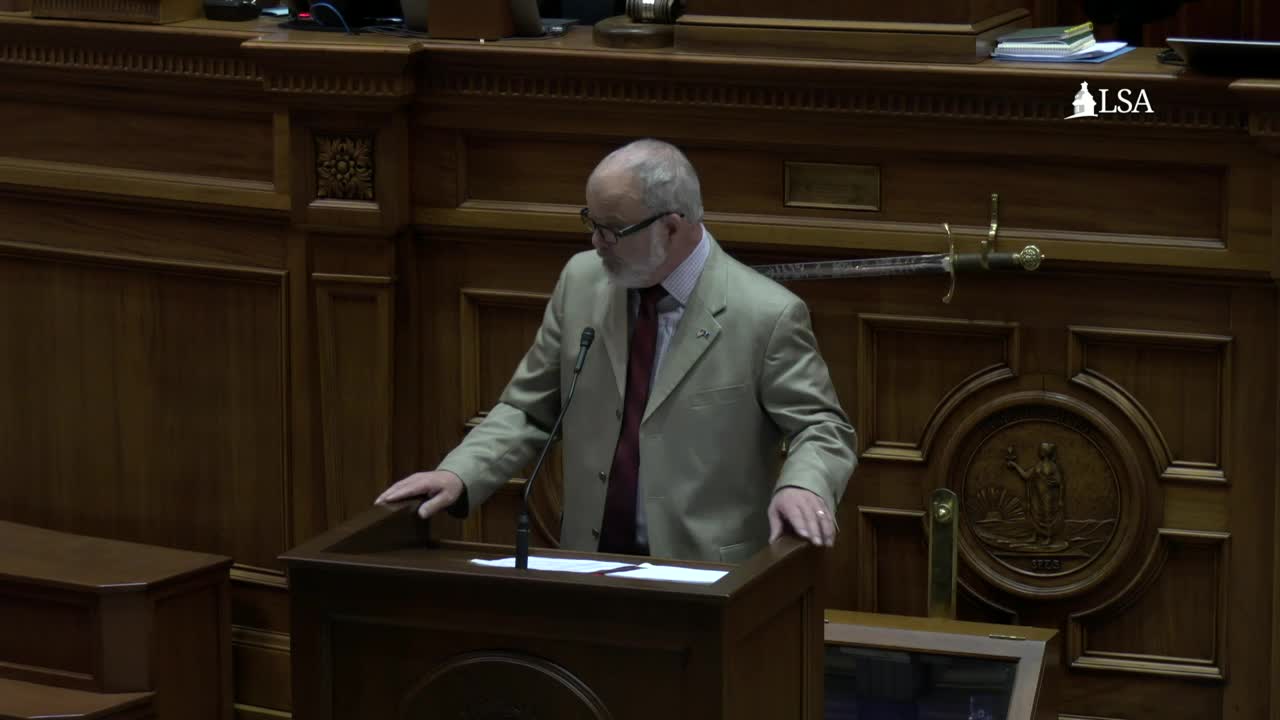Senate amends and carries over bill to criminalize production, solicitation of AI-generated explicit images depicting minors
Get AI-powered insights, summaries, and transcripts
Subscribe
Summary
Senators debated S.28, which would authorize arrests for producing, distributing or possessing with intent to distribute AI-generated sexually explicit images of minors; the chamber adopted clarifying amendments including adding 'solicits' and carrying the bill over for further work on definitions and sentencing.
Senators debated S.28 on Feb. 11, a bill that would create criminal liability for knowingly producing, distributing or possessing with intent to distribute AI-generated sexually explicit material depicting minors, and adopted clarifying amendments before carrying the bill over for additional work.
Senator Adams (Berkeley) summarized the bill as creating a crime for knowingly producing or distributing "AI generated, explicit material," and described the intent to give law enforcement authority to investigate and arrest those who produce or traffic in such images. The bill drew sustained floor discussion about definitions, mens rea (knowledge/intent), registry and appropriate sentencing.
Senator Johnson (York) offered an amendment to clarify how people could be removed from offender registries, explaining the change would "spell out who is at what point you're allowed to come off the criminal registry at the 15 year mark and at the 25 year mark, depending on whether you are a tier 1 or tier 2 offender. This does not change the underlying bill. It simply clarifies the language to make sure it's being applied correctly."
Senator from Chester proposed a single-word amendment to add the term "solicits" to the statute so that the law would reach people who request or create a market for the material. He said the amendment "simply just to add the word solicits" and argued the addition distinguishes someone who knowingly requests illicit images from someone who unintentionally receives them.
Senators raised concerns about potentially criminalizing minors or other recipients who did not solicit images, possible evidentiary questions about digital remnants on devices, and whether mandatory minimum sentences in the bill should be suspended to give judges discretion. Senator Lieber urged caution about mandatory two-year terms for some offenders and said prosecutors should retain charging discretion.
The Senate agreed to the registry-clarifying amendment and to the amendment adding "solicits." After adoption of those amendments, Senator Adams moved to carry S.28 over so the bill could be further refined; members approved the motion and the bill was carried over.
The transcript records no final passage or floor vote on the underlying bill during this session; sponsors and questions indicated further drafting would address intent, definitions, and sentencing concerns.
Key clarifications: the chamber adopted changes clarifying registry removal timelines and added solicitation as a prosecutable act; senators discussed—but did not resolve—questions about whether receipt alone should trigger liability and about mandatory minimum sentences.
